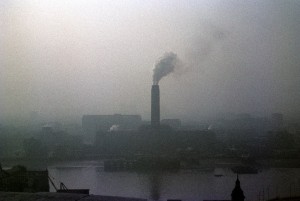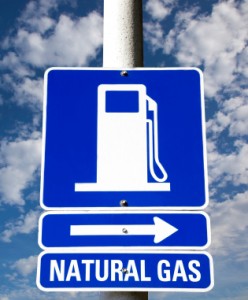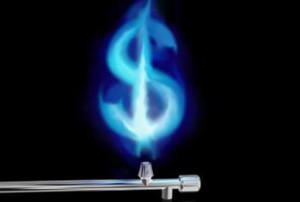8 item(s) were returned.
Professor of Physics
University of Califoria at Berkeley
Some oppose shale gas because it is a fossil fuel, a source of carbon dioxide. Some are concerned by accounts of the fresh water it needs, by flaming faucets, by leaked “fugitive methane”, by pollution of the ground with fracking fluid and by damaging earthquakes. Although I believe that global warming is real, caused by humans, and a threat to our future, these concerns about shale gas are either largely false or can be addressed by appropriate regulation such as the controversial but ultimately positive developments in Illinois. Shale gas can not only reduce greenhouse gas emissions, but also reduce a deadly pollution known… [more]
View InsightPennsylvania’s Act 13 of 2012 created a three-year Natural Gas Energy Development Program that will allocate $20 million in grant funds to purchase or convert vehicles to natural gas. The goal of Act 13 is “to help the state’s ongoing effort to move towards energy independence.” Last week, Pennsylvania’s Department of Environmental Protection issued the first $6.7 million of the competitive grant funds to 18 organizations across the state. The grant money comes from Pennsylvania’s drilling impact fee, which has raised $200 million from the gas industry flourishing in the Marcellus Shale. The grants are capped at 50 percent of… [more]
View InsightProfessor of Public Policy
Georgia Institute of Technology
Thanks to breakthroughs in seismic imaging, horizontal drilling and hydraulic fracturing, the US in 2012 reduced its reliance on much dirtier coal by shifting to gas-fired power plants. This trend is expected to continue, spurred by low gas prices and increased regulation on coal. The move to shale gas is being heralded as a key to economic prosperity and a clean energy future. But there are other options for displacing baseload electricity from retired coal plants, the principals being nuclear, renewables and energy efficiency. Will the gas bonanza enable or postpone the transition to these cleaner options? While natural gas… [more]
View InsightA bill, recently introduced by Illinois State Representatives John Bradley and David Reis, to regulate hydraulic fracturing in the state is attracting support from both industry and environmental groups. The bill, House Bill 2615, introduced on February 21st, 2013, would impose new requirements on the oil and gas industry, such as: Public disclosure of all fracking chemicals before fracking begins Presumed liability of the oil and gas drillers for any environmental contamination near fracking sites, until proven otherwise Restrictions on venting and flaring of natural gas The bill’s supporters believe that it outlines an effective compromise that could open up… [more]
View InsightThree recent efforts – two private, and one public – could shape the future of U.S. shale gas and oil development. The Marcellus Shale Coalition (MSC), an industry group, released Recommended Practices: Site Planning, Development and Restoration, offering general guidance for natural gas professionals developing or restoring shale plays in the Marcellus. Days later, the Appalachian Shale Responsible Producers Group (ASRPG), led by Andarko Energy, released their Recommended Standards and Practices, which again provides general guidance to well operators and shale play developers. Ohio Governor John Kasich has pushed legislation to the state’s legislature that the his office hopes will… [more]
View InsightAccording to data collected and reported by Bloomberg News, the “U.S. is the closest it has been in almost 20 years to achieving energy self-sufficiency”. In the first 10 months of 2011, 81% of U.S. energy demand was met by domestic sources, up from a record low of 70% in 2005. If the 2011 numbers are accurate, this would be the highest proportion of U.S. energy demand met by domestic sources since 1992. This upward trend in energy self-sufficiency is due in large part to increased oil and natural gas development, and low natural gas prices. “Domestic oil output is… [more]
View InsightPrincipal
Energy Futures Initiative
Modeling results in the MIT Future of Natural Gas Study released in June of last year suggested that the US could make major progress in the next two decades towards achieving a 50% reduction in CO2 emissions by 2050 – a real reduction, no offsets or other creative and questionable mechanisms –largely through two actions: reduced energy consumption, and switching from coal to natural gas in power generation. The study also concluded that simply by utilizing surplus Natural Gas Combined Cycle capacity from existing units in lieu of coal generation, the US could achieve a 20% reduction in CO2 emissions… [more]
View InsightDirector, Stakeholder Relations/External Affairs
Brookhaven National Laboratory
Hydrofracking for natural gas in shale formations has generated a heated national debate, complicating and in some cases preventing efforts to extract the resource. Critics of hydrofracking cite the process’ uncertain environmental and geologic risks. Meanwhile, natural gas developers and policymakers have been working to identify and implement technical standards and best practices to overcome or reduce these risks to negligible levels. In my home state of New York, Governor Andrew Cuomo has said of hydrofracking: “Let’s get the facts. Let the science and the facts make the determination, not emotion and not politics.” I agree. State of the art… [more]
View Insight


